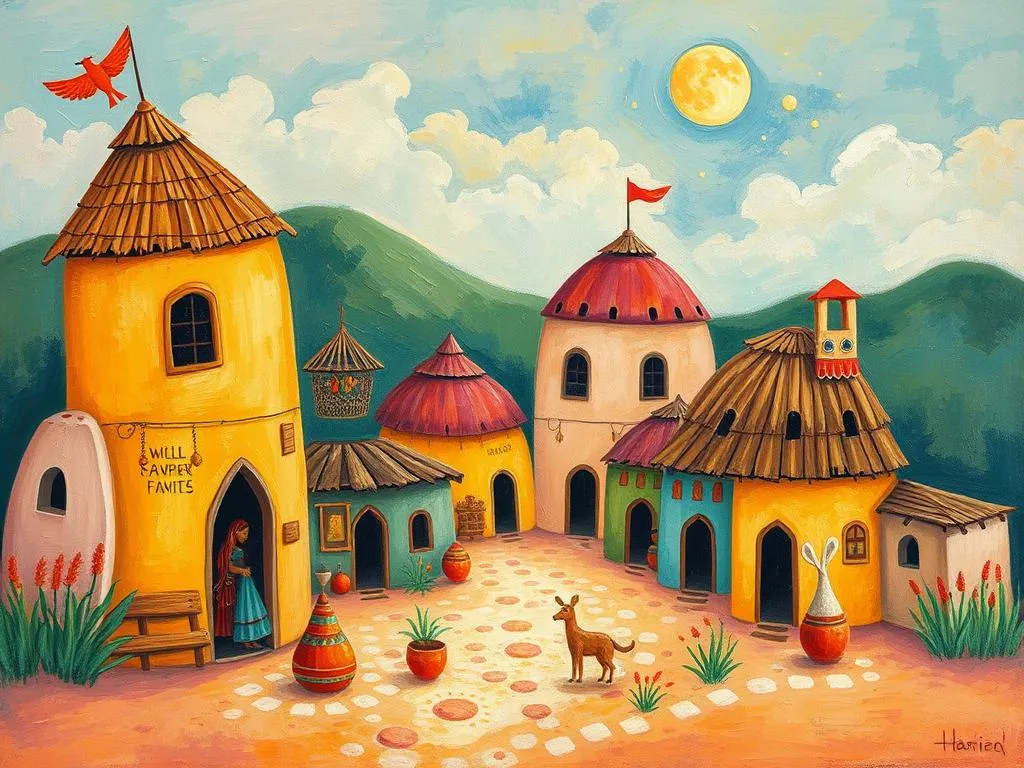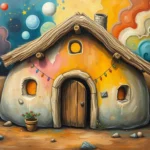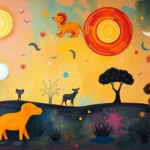
Dreams have long been a source of fascination, offering a window into our subconscious mind. Among the myriad of dream symbols, an Indian village holds a particularly rich tapestry of meaning, steeped in cultural significance and personal symbolism. This dream can resonate deeply with those who have ties to rural life, spirituality, or a quest for simplicity. But even for those without direct connections, the imagery of a village evokes themes of community, identity, and belonging, making it a compelling subject for exploration.
Symbolism and Meaning
Dreaming of an Indian village can embody several layers of symbolism. At its core, a village often represents a close-knit community or a return to one’s roots. It can signify the importance of relationships and the support system provided by family and friends. In the context of Indian culture, where villages are often centers of tradition and heritage, this dream might reflect a desire to reconnect with one’s cultural identity or values.
The landscape of the village can also play a crucial role in the interpretation. Lush fields, flowing rivers, and simple homes may symbolize abundance, peace, and the nurturing aspects of life. Conversely, barren land or dilapidated structures could signify neglect, unresolved issues, or a longing for a more fulfilling existence.
Another significant aspect of an Indian village is its connection to spirituality. In dreams, villages can symbolize a journey toward self-discovery or enlightenment. The presence of temples, rituals, or festivals within the dream may indicate a need for spiritual awakening or a reminder to engage more deeply with one’s spiritual beliefs.
Furthermore, the characters encountered in the dream—be it family members, friends, or even strangers—can add layers to its meaning. Interactions with familiar faces may highlight unresolved relationships or feelings of nostalgia. Alternatively, encounters with unknown villagers can represent aspects of oneself that are yet to be explored. This duality of familiarity and the unknown creates a dynamic reflection of the dreamer’s inner self.
Key Scenarios and Variations
The dream of an Indian village can manifest in various scenarios, each offering unique insights into the dreamer’s life and psyche. For instance, dreaming of returning to one’s childhood village might evoke feelings of nostalgia and longing for simpler times. This scenario suggests a yearning for the innocence and joy of youth, possibly indicating a need to escape the complexities of adult life.
Conversely, if the dreamer finds themselves exploring a village they have never visited, this may symbolize a journey into the unknown aspects of their life. It encourages the dreamer to embrace new experiences and perspectives, urging them to step outside their comfort zone. This exploration can serve as a metaphor for personal growth and the embracing of change.
Another common variation involves the dreamer participating in a village festival or celebration. Such a dream can symbolize harmony, joy, and a sense of belonging. It may reflect the dreamer’s desire to connect with others, celebrate achievements, or simply enjoy life’s pleasures. It serves as a reminder of the importance of community and shared experiences.
On the flip side, dreaming of a village in distress—perhaps during a natural disaster or conflict—can be a powerful symbol of inner turmoil. This scenario may suggest that the dreamer is experiencing chaos in their waking life or grappling with unresolved conflicts. It serves as a call to address these issues, encouraging the dreamer to seek solutions and restore balance.
Lastly, the presence of animals in the dream, such as cows or elephants, can carry additional meanings. In Indian culture, these animals are often considered sacred and symbolize abundance, strength, and wisdom. Their presence in the dream could indicate a connection to these qualities or a reminder to honor them in waking life.
Real-Life Connections and Takeaways
Connecting dreams of an Indian village to real-life situations can provide invaluable insights for self-reflection. It’s essential to consider what aspects of the dream resonate most strongly with your current life circumstances. Are there relationships in your life that require nurturing? Perhaps the dream is prompting you to reach out to loved ones or to engage more deeply with your community.
Additionally, consider your feelings during the dream. Were you at peace, or did you feel anxiety? This emotional response can offer clues to your subconscious state. A peaceful dream may suggest contentment with your current path, while feelings of unease could indicate areas in your life that require attention or change.
Reflecting on the cultural significance of the Indian village can also deepen your understanding. If you have roots in Indian culture or have spent time in rural communities, the dream may reflect a longing to reconnect with those aspects of your identity. Alternatively, if you have no direct ties, the village may symbolize a universal desire for connection and community, highlighting the importance of these elements in personal fulfillment.
To engage more deeply with your dream, consider journaling about your experiences. Write down your feelings, the symbols you encountered, and any significant interactions. This process can help unveil patterns or themes in your life, guiding you toward greater self-awareness and understanding.
As you explore the dream’s meaning, it may also be helpful to practice mindfulness and meditation. These practices can create a space for reflection, allowing you to connect more profoundly with your inner self and the messages your dreams convey.
In conclusion, dreams of an Indian village can serve as a powerful mirror reflecting our desires, fears, and connections to our roots. By delving into their symbolism and considering personal variations, we unlock opportunities for growth and understanding. Embrace the insights these dreams provide, and allow them to guide you on your journey of self-discovery and connection with the world around you.







